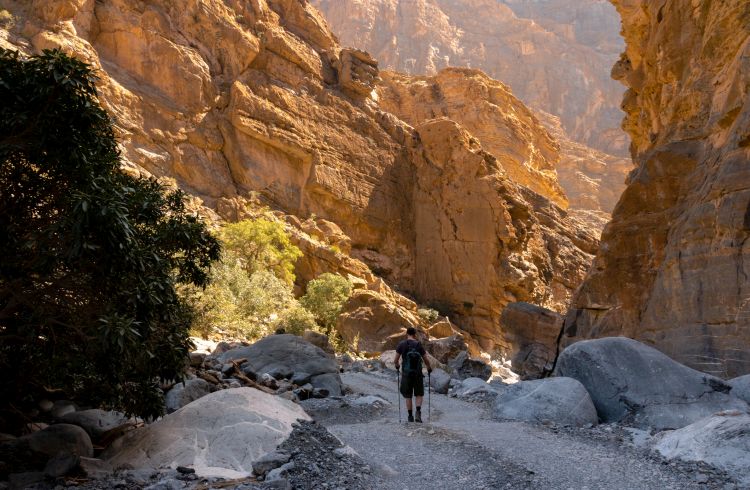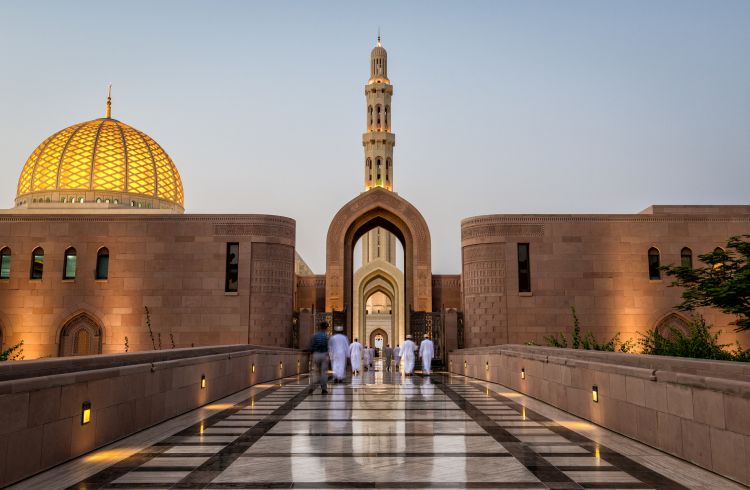How to Stay Healthy While Traveling Around in Oman
Can you drink tap water in Oman? From MERS to medical facilities, find out how to stay healthy and practice good hygiene while traveling in this gulf country.
 Photo © Getty Images/photography by Ulrich Hollmann
Photo © Getty Images/photography by Ulrich Hollmann
- Medical treatment in Oman
- Mosquito-borne diseases in Oman
- MERS in Oman
- Heat related illnesses
- Can I drink tap water in Oman?
Medical treatment in Oman
Oman has good public and private medical facilities, however, this can vary as you travel further from urban centers and the cost can be expensive. Before you travel make sure you have travel insurance with adequate medical treatment coverage including medical evacuation.
If you do need medical services and lack insurance coverage, you may be prevented from leaving the country until your bill is paid in full.
If you need to take medications while you travel, take what you need from home as it may not be available in Oman. Check that your medications are legal with the Omani embassy in your country, as some medicines you take at home may be considered illegal overseas. Always carry a doctor's letter outlining dosage, purpose and that the medication for personal use only.
Mosquito-borne diseases in Oman
Warm temperatures and climate in Oman make it an ideal place for diseases such as malaria, dengue fever, and leishmaniasis to flourish, particularly on the Musandam Peninsula. Take general precautions such as covering up in long sleeved clothing, applying insect repellent on exposed skin and sleeping under a mosquito net. For tips on bite prevention, read this.
MERS in Oman
Middle East respiratory syndrome (MERS), also known as camel flu, is a viral respiratory illness that was first reported in Saudi Arabia in 2012. This strain of virus is zoonotic, which means it is transmitted between animals and people. People are infected through direct or indirect contact with infected dromedary camels. It doesn’t pass easily between people unless there is close contact.
Cases have been reported in Oman, and there is no vaccination available. If you plan to visit farms, take a camel ride or visit any other places where camels may be, you should wash your hands before and after touching any animal. Avoid consuming unpasteurized camel products such as milk, and make sure all camel meat is thoroughly cooked before eating.
Heat-related illnesses
The most common health problem travelers get caught out in Oman is the heat. For people not used to such temperatures (129°F (54°C) is common, especially in the summer months), it's very easy to become dehydrated, sunburnt, or experience heatstroke.
Be sensible and stay out of the sun as much as possible. Use sunscreen and make sure you drink plenty of water. A warning sign of dehydration and heatstroke is a headache that increases in severity starting at the temples and behind the eye sockets. If you experience that, get out of the heat, and start drinking more water and electrolytes.
Can I drink tap water in Oman?
The water quality in Oman is good most of the time, but you may see locals drinking bottled water. If you're unsure and worried about water-borne diseases, stick to boiled or treated water. Avoid ice cubes unless you know they are from a safe source and avoid raw, undercooked food and unpasteurized milk products.
Related articles
Simple and flexible travel insurance
You can buy at home or while traveling, and claim online from anywhere in the world. With 150+ adventure activities covered and 24/7 emergency assistance.
Get a quote
No Comments